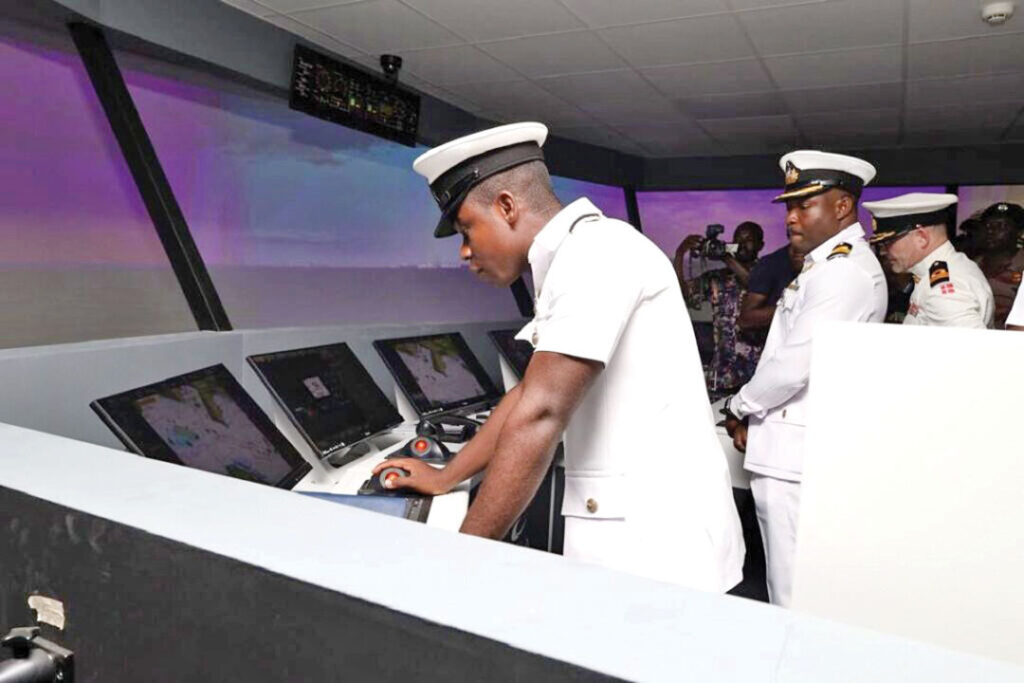The Ghana Navy has opened a state-of-the-art full mission bridge simulator to improve Sailors’ navigation, safety and decision-making. The simulator was built with support from Denmark and is at Naval Training Command in Nutekpor in Ghana’s Volta Region.
The system includes a 270-degree full mission bridge simulator, three 120-degree part-task simulators, two instructor stations, a briefing room, a server room and instructor offices. Its design replicates the challenges and dangers Sailors could face in the Gulf of Guinea.
The simulator has been named the Lill-May Didriksen Simulation Centre, in honor of a pioneering Royal Danish Navy officer.
Authorities believe interactive digital instruction is essential to prepare Sailors for the worst scenarios without risking their lives or taking ships out of use for training.
“In our digitized era, simulation training has emerged as an indispensable tool for developing the skills needed to navigate modern maritime challenges,” Legal Counsel to the President of Ghana Marietta Agyeiwaa Brew said. “Facilities like the Lill-May Didriksen Simulation Centre exemplify the future of practical training, offering advanced systems that replicate real-world scenarios in a controlled and safe environment.”
Ghana provided $322,000 for construction, and Denmark paid to acquire technology worth $370,000 from the Wärtsilä Voyage company. Denmark’s Svendborg International Maritime Academy trained instructors.
Ghanaian Commodore Solomon Asiedu-Larbi, the flag officer commanding the Naval Training Command, said the center would offer his Sailors practical skills, confidence and experience to operate calmly and effectively at sea, even during emergencies.
“In our line of work, precision, readiness and professionalism are nonnegotiable,” he said. “Naval operations are inherently complex and demand unwavering competence.”
Ghana also hopes these training tools will expand its maritime sector and spur young people to work in the sector and boost the nation’s economy.
“Around the world, secured maritime spaces have led to thriving fisheries, increased maritime trade and sustainable offshore energy projects,” Brew said. “We are therefore determined to replicate this success in Ghana.”

